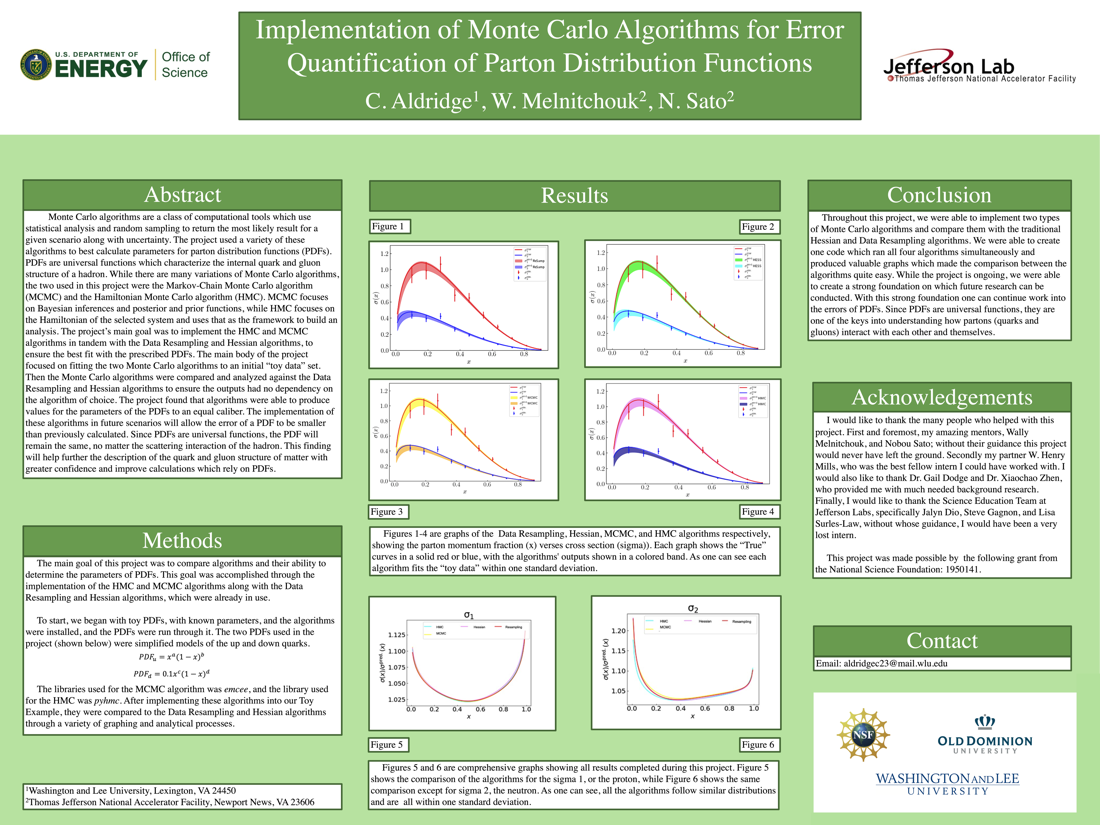Undergraduate Research at Jefferson Lab
Implementation of Monte Carlo Algorithms for Error Quantification of Parton Distribution Functions
Student: Cordie Aldridge
School: Washington & Lee University
Mentored By: Dr. Wally Melnitchouk
Monte Carlo algorithms are a class of computational tools which use statistical analysis and random sampling to return the most likely result for a given scenario along with uncertainty. The project used a variety of these algorithms to best calculate parameters for parton distribution functions (PDFs). PDFs are universal functions which characterize the internal quark and gluon structure of a hadron. While there are many variations of Monte Carlo algorithms, the two used in this project were the Markov-Chain Monte Carlo algorithm (MCMC) and the Hamiltonian Monte Carlo algorithm (HMC). MCMC focuses on Bayesian inferences and posterior and prior functions, while HMC focuses on the Hamiltonian of the selected system and uses that as the framework to build an analysis. The project's main goal was to implement the HMC and MCMC algorithms in tandem with the Data Resampling and Hessian algorithms, to find whether the algorithms were overfitting the data and ensure the best fit with the prescribed PDFs. The main body of the project focused on fitting the two Monte Carlo algorithms to an initial "toy data" set. Then the Monte Carlo algorithms were compared and analyzed against the Data Resampling and Hessian algorithms to ensure the outputs had no dependency on the algorithm of choice. Once that was determined, the PDFs of the up and down quarks were changed, allowing them to be more flexible. Once the desired level of flexibility was achieved, then the algorithms had to be altered to ensure there was no overfitting. The project found that algorithms were able to produce values for the parameters of the PDFs with no overfitting. The implementation of these algorithms allows the error of a PDF to be smaller than previously calculated. This finding is useful since PDFs are universal functions, meaning no matter the scattering interaction of the hadron, the PDF will remain the same. This finding will help further the description of the quark and gluon structure of matter with greater confidence and improve calculations which rely on PDFs.
[Watch the presentation on YouTube]

Citation and linking information
For questions about this page, please contact Education Web Administrator.
